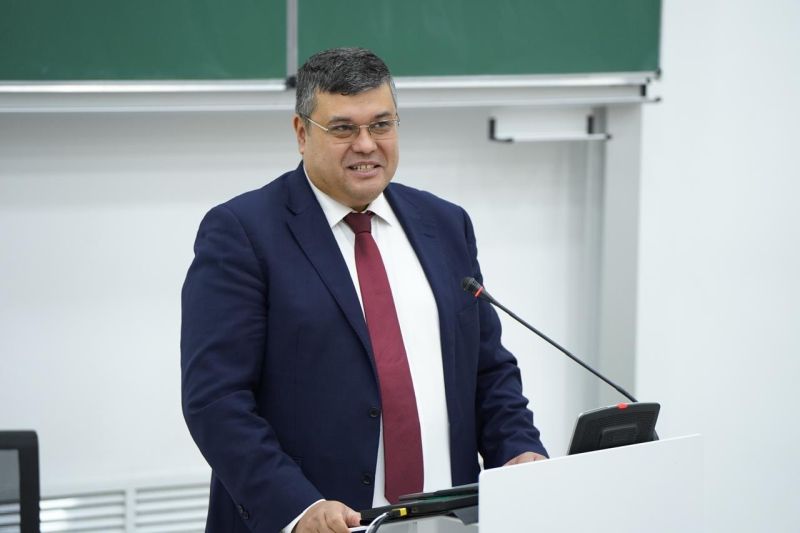ASTANA, Kazakhstan, May 2. Kazakhstan's economy is showing strong growth despite a surge in inflation and supply-side shocks, said Akylzhan Baimagambetov, Deputy Governor of the National Bank of Kazakhstan, at the presentation of the IMF's Regional Economic Outlook for the Caucasus and Central Asia in Tashkent, Trend reports.
According to him, despite significant progress in 2023, inflation has once again entered double digits, fueled by a combination of global uncertainties and domestic factors.
Baimagambetov highlighted Kazakhstan's success in reducing inflation from over 21 percent at the beginning of last year to 8.6 percent by the end of 2023. However, the recent surge in inflation, now exceeding 10 percent, has raised concerns.
"One part of this is global uncertainties, which create a lot of market volatility on different markets, energy markets, commodities, financials, which also affect some export revenues in Kazakhstan, especially in terms of oil prices," said Baimagambetov.
He also pointed to internal factors, such as the government’s fiscal stimulus and liberalization policies, which, while spurring economic growth, have contributed to inflationary pressures.
"We have a robust economic growth, reached 5.8 percentage points across all sectors, all industries, and it's also led by some huge financial, fiscal stimulus from the government, which does not make my job easier," he explained.
The official emphasized that while the National Bank of Kazakhstan remains committed to inflation targeting, it faces significant challenges in managing supply-side shocks, such as the liberalization of utility tariffs and gasoline prices. As a response, the central bank recently raised its policy rate by 125 basis points to maintain moderately tight monetary conditions. Despite these efforts, inflation is expected to remain above 10 percent by the end of this year, with a gradual return to the 5 percent target within two years.
The International Monetary Fund (IMF) is a global organization established in 1944 to promote international economic stability, growth, and cooperation. It provides financial assistance, policy advice, and technical support to countries in need. The IMF monitors the global economy, offers loans to member countries facing financial difficulties, and conducts research to inform economic policies worldwide. With 190 member countries, it aims to ensure financial stability, reduce poverty, and support sustainable economic growth.







